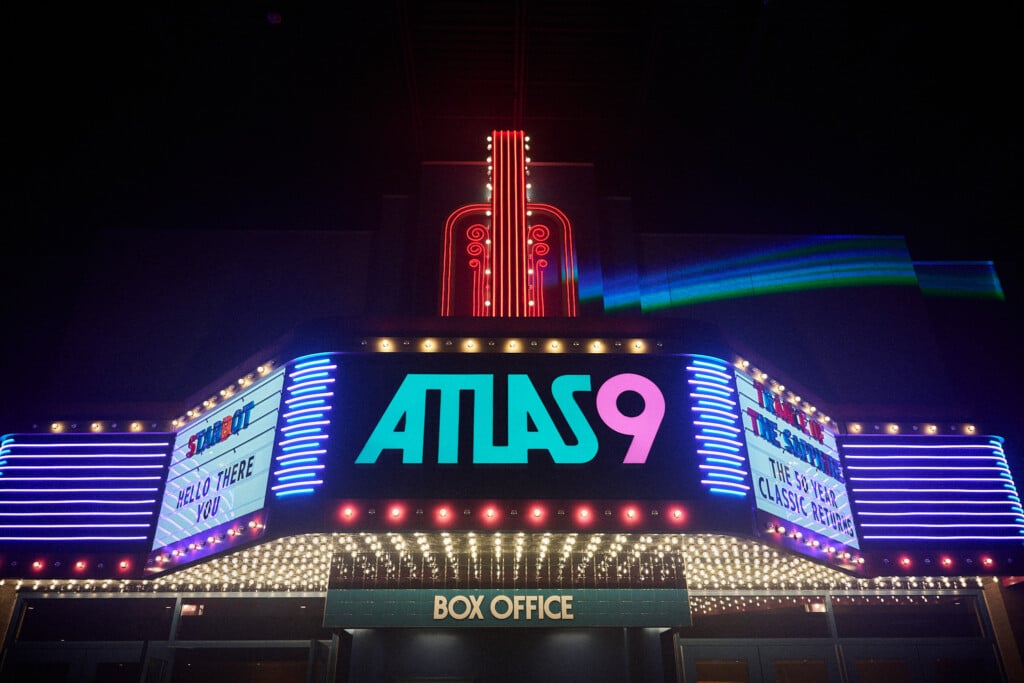Bardo, False Chronicle of a Handful of Truths leaves the audience completely adrift
Alejandro González Iñárritu’s latest navel-gazing ode to himself is exactly what you'd expect.
Attempting to boil multihyphenate filmmaker Alejandro González Iñárritu’s Bardo, False Chronicle of a Handful of Truths to its basic plot elements is as easy as harnessing nuclear fusion. At some points, it’s a meditation on life, tackling subjects like aging, legacy, grief and loss. At others it’s a bloated rendering of an artist searching for meaning in chaos while making sure everyone knows how talented he (and the real-life director he resembles) is.
Bardo’s protagonist, Mexican journalist and documentarian Silverio Gama (Daniel Giménez Cacho) may not fit the academy award-winning Iñárritu perfectly, but there’s no mistaking the film for a thinly veiled semi-autobiographical work. That self-involvement ruins what could have been a compelling fable about an artist grappling with his place in the universe, and how fact and fiction get jumbled in a creative mind. Instead, Bardo is a nearly three-hour depiction of someone who refuses to go to therapy, continually yelling “I’m right!” into the void.
Structured like a fractured hourglass, Bardo shifts setting and perspective like Michel Gondry on a coke bender. One moment Silverio is on a bus, then he’s underwater, then he’s in the living room of his apartment, which finally becomes a dollhouse. Ghosts of his wife (Griselda Siciliani) and friends may or may not haunt the various halls he wanders down, opening doors leading to moments from his past and possible future.
As tiring as Bardo can be for long stretches, it always manages to engage visually. The production design by Eugenio Caballero and the art direction of Carlos Y. Jacques and Roberto Bonelli is wondrous to behold, bordering on sensory overload. There’s so much to look at that it’s a shame when characters open their mouths and everything screeches to a halt.
That would seem harsh if Bardo didn’t hinge entirely on two moments where the director thinks he exposes his soul to the audience, but instead ring hollow. In the first, Silverio attempts to explain to his son Lorenzo (Íker Sánchez Solano) why his art and the major American Journalism award he is receiving are important. He rambles, saying he loathes getting awards, then two seconds later admits he craves attention and makes films to receive praise.
Bardo symbolically pits Iñárritu and his defenders against his critics. At a party in his honor, Silverio encounters a former friend (Fransico Rubio) whose talk show he blew off. Sensing hostility, Silverio asks Luis to tell him what he thinks of his films. Luis launches into a tirade, rattling off numerous criticisms that Iñárritu himself has been accused of throughout his career.
That sounds dangerously like a moment of reflection and possible growth on Iñárritu’s part, until Silverio fires back at Luis, claiming his “critic” is nothing more than a peon who will never be able to appreciate true art. As a final blow, Silverio says he doesn’t want to hear anything Luis has to say, rendering him mute. This should be a comment on an artist standing their ground, but instead, it’s a rallying cry for Iñárritu to indulge in his worst instincts.
Those instincts are on full display during the litany of set pieces that reflect Luis’ comment that Silverio can’t even cover up his plagiarism. Iñárritu’s film openly cribs images from Fellini’s 8 1/2, Malick’s The Tree of Life and Jodroworsky’s Endless Poetry. Not content to stop there, a battle recreation early on plays out like something from Russian Ark. Strangest of all is a scene in an airport that hews closely to Roy Andersson’s Songs From The Second Floor.
Ardent fans of Iñárritu are likely to call foul on the hyper-criticisms of Bardo, but that doesn’t change the fact that those criticisms are warranted. Iñárritu’s latest is visually mesmerizing, but that’s just to distract from how vapid it is at its core. When things do occasionally quiet down and allow for genuine emotion, there are hints of a much better film screaming to get out. Unfortunately, Bardo is just a pretentious exercise in a man screaming at his own shadow for the lack of attention it gives him.






